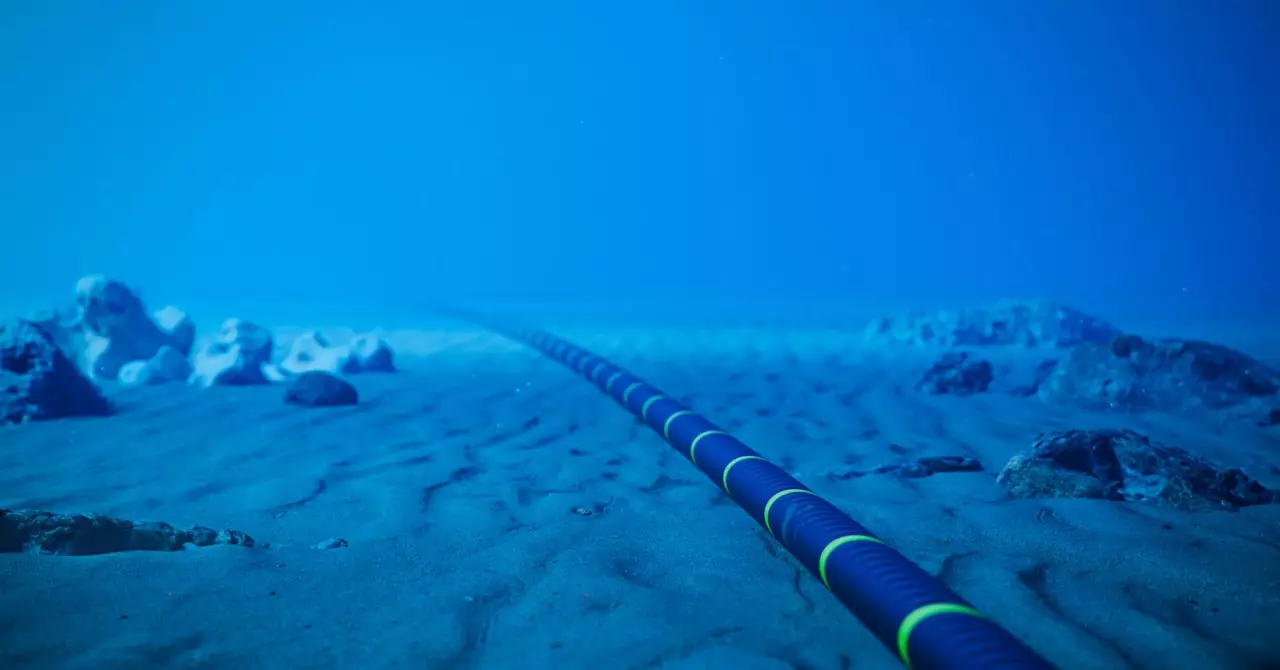Meta, the tech giant formerly known as Facebook, has unveiled an unprecedented endeavor known as the Waterworth Project. This strategic initiative aims to construct a staggering 50,000 kilometers of undersea cable infrastructure that will connect five continents, an endeavor essential for bolstering the company’s grip on its service management and infrastructure development. With the rising prominence of artificial intelligence (AI), Meta’s investment is positioned as a vital catalyst for digital innovation across the globe.
Undersea cables form the backbone of global internet connectivity, facilitating over 95% of all intercontinental data traffic. The Waterworth Project is projected to be a multiyear, multibillion-dollar investment designed to enhance the reliability and scale of digital communication channels worldwide. The project’s vision aligns with Meta’s ambition to open up three new oceanic corridors that can support the burgeoning demand for high-speed internet, essential not only for AI advancements but for a plethora of online services that modern society relies on.
The launch of the Waterworth Project comes at a time when the demand for internet connectivity is skyrocketing, particularly in emerging markets such as India. This project, initially rumored last fall, is poised to be the longest undersea cable installation in history, surpassing even the Earth’s circumference. Key landing points will include pivotal locations in India, the United States, Brazil, and South Africa, all of which are set to benefit from enhanced connectivity.
Meta highlights the project as a significant boost for India’s digital landscape, which has witnessed rapid expansion and investment in recent years. The advancement of the Waterworth Project is expected to catalyze further growth in India’s digital economy by supporting a robust network that can handle the country’s increasing internet demands.
Furthermore, the recent bilateral statements from leaders like former President Donald Trump and Indian Prime Minister Narendra Modi underline the global significance of this initiative. Their endorsement reflects a shared vision of advancing undersea technologies and enhancing connectivity in the Indian Ocean region—further cementing the project’s critical role in international tech diplomacy.
One of the most intriguing aspects of the Waterworth Project is its innovative cable architecture, designed with 24 fiber pairs that will enable optimized routing in deep-water conditions, extending to depths of up to 7,000 meters. This sophisticated design is crucial for ensuring that the cable remains operational amidst environmental challenges. Notably, Meta has touted improvements in burial techniques to safeguard cables in high-risk areas, particularly near shorelines where ship anchors pose threats.
These advancements in installation and maintenance reflect an acute awareness of both the technical challenges and the increasing geopolitical concerns surrounding internet infrastructure. As Meta strives to bolster its already extensive ecosystem—including platforms like Facebook, Instagram, and WhatsApp—ensuring the resilience of its networks is paramount. Current estimates suggest that Meta’s services account for approximately 10% of fixed internet traffic and 22% of mobile data traffic worldwide.
With the Waterworth Project, Meta is poised to enter a fiercely competitive arena dominated by other tech giants like Google, which currently boasts around 33 dedicated undersea cable routes. While Google and companies like Amazon and Microsoft have also invested heavily in undersea infrastructure, many of them primarily hold shared interests or lease capacity on existing cables. By fully owning the Waterworth Project, Meta aims to carve out a distinct position in this critical segment, offering its services with newfound autonomy and control.
The Waterworth Project marks a pivotal moment for Meta as it seeks to redefine global internet connectivity standards. The ambitious scope and strategic importance of this initiative highlight how undersea cables are not just conduits for data but also prime enablers of economic growth, technological progress, and international collaboration. As the world becomes increasingly dependent on seamless digital communication, the success of Waterworth may indeed transform the contours of the global internet landscape.


Leave a Reply
You must be logged in to post a comment.